Big MACCAC Attack!
 Brothers Tone and the Big Groove performed a sold out Valentines concert at the Great River Arts Center in Little Falls Frank Weber is speaking at MACCAC (Minnesota Association of Community Corrections Act Counties) conference, at the St. Cloud Convention Center, this Thursday, February 22, 2018, from 8:00 to 10:00 am. After the Broward County school shooting President Trump was quick to point out it is a mental health issue, rather than a gun issue. Last year I presented on MACCAC on the crisis mental illness is presenting to corrections. (Maybe I was a year early.) I had just reached a point where I wanted to say to lawmakers, “Wake up and open your eyes.”
Brothers Tone and the Big Groove performed a sold out Valentines concert at the Great River Arts Center in Little Falls Frank Weber is speaking at MACCAC (Minnesota Association of Community Corrections Act Counties) conference, at the St. Cloud Convention Center, this Thursday, February 22, 2018, from 8:00 to 10:00 am. After the Broward County school shooting President Trump was quick to point out it is a mental health issue, rather than a gun issue. Last year I presented on MACCAC on the crisis mental illness is presenting to corrections. (Maybe I was a year early.) I had just reached a point where I wanted to say to lawmakers, “Wake up and open your eyes.”Did you know that the most common way people are accessing mental health services today is by being arrested? As a society we lack crisis mental health services and we need to consider solutions as it costs us lives and more money in the long run. Ask anyone who works in corrections. They deal with it every day.
This year, instead of giving an overview of a problem, I decided to offer some practical advice on addressing impulsive decision making. But I still have to add, every time an issue comes up, we hear, “This is not the government’s job.” So before I get started, let me offer this: If it’s not the government's job to regulate industry, provide education and healthcare, or to protect its citizens from threats, just what is the government's job?
 Addressing Impulsive Decision Making with Mentally Ill/Antisocial Offenders at the MACCAC (Minnesota Association of Community Corrections Act Counties) conference. St. Cloud Convention Center, February 22, 2018. 8:00 to 10:00 am
Addressing Impulsive Decision Making with Mentally Ill/Antisocial Offenders at the MACCAC (Minnesota Association of Community Corrections Act Counties) conference. St. Cloud Convention Center, February 22, 2018. 8:00 to 10:00 amFrank Weber, M.S./L.P., Clinical Director of CORE Professional Services, PA
Frankweberauthor.com
CORE (320) 202-1400 frankw@coretreatment.com
 “Between stimulus and response there is a space. In that space is our power to choose our response. In our response lies our growth and our freedom.”
“Between stimulus and response there is a space. In that space is our power to choose our response. In our response lies our growth and our freedom.” ― Viktor E. Frankl
“Every characteristic absence of spirituality, every piece of common vulgarity, is due to an inability to resist a stimulus - you have to react, you follow every impulse.”
― Friedrich Nietzsche , The Anti-Christ/Ecce Homo/Twilight of the Idols/Other Writings
It’s essential to remain calm in emotional times.
 Impulsive decision making can lead to:Financial instabilityGambling/financial lossDishonestyProperty damageSelf-injuryAssaultLegal charges for theft/DWI/substance use/assaultSubstance relapseProbation violationsUncommitted sex/damaged relationshipsDeviant sexual behaviorPregnancy/sexually transmitted infectionsHigh risk situations
Impulsive decision making can lead to:Financial instabilityGambling/financial lossDishonestyProperty damageSelf-injuryAssaultLegal charges for theft/DWI/substance use/assaultSubstance relapseProbation violationsUncommitted sex/damaged relationshipsDeviant sexual behaviorPregnancy/sexually transmitted infectionsHigh risk situations Story: Assessment question: What year did you graduate from high school? Answer: “The 12th year.”
Critical thinking levels: (Taken from Allison King’s Designing Critical Thinking)
People operate at 3 different levels of reasoning:
Story: I loved looking at the way my children, and now grandchild, problem solve, although my 4 year old granddaughter warned me, “No more tricky questions, and I’m done talking about love.” Favorite story is when she asked a couple in their 80’s “Are you two doing okay?”
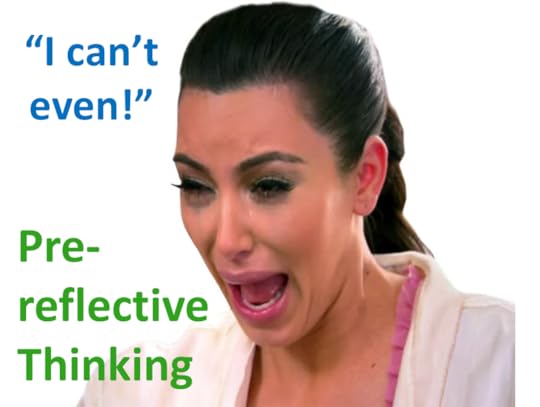 1. Pre-reflective = “If it feels good, do it.”
1. Pre-reflective = “If it feels good, do it.” 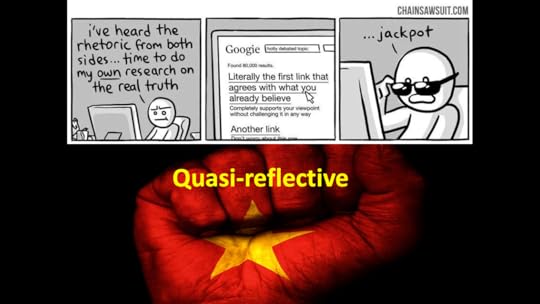 2. Quasi-reflective = You only pay attention to evidence that supports what you believe (confirmation bias). Unfortunately, many people don’t get beyond this.
2. Quasi-reflective = You only pay attention to evidence that supports what you believe (confirmation bias). Unfortunately, many people don’t get beyond this.  3. Reflective thinking = You consider what you desire, but also weigh the consequences of that choice and reason through it. You take into account “Is this a step toward becoming the person I want to be?”
3. Reflective thinking = You consider what you desire, but also weigh the consequences of that choice and reason through it. You take into account “Is this a step toward becoming the person I want to be?”  Dialectical reasoning involves considering a contradictory option to what’s desired. Most people aren’t able to use reflective thinking until they are adults. Here’s an example:
Dialectical reasoning involves considering a contradictory option to what’s desired. Most people aren’t able to use reflective thinking until they are adults. Here’s an example:Belief: I desire to be at this party-- even though there are underage people drinking alcohol and illegal drugs. I will have fun. I can control my substance use.
Contradictory Belief: My life and my values go beyond what I want. I don’t need to immediately have what I want. (I have matured beyond the age of 2.) Everybody has restrictions and I’d be a fool not respect mine. (As a therapist I have a window in my office for protection from an allegation.) If I had a criminal charge, I’d want to respect my restrictions because I’d want to stay out of jail. I’d want to keep my promises to people who stood by me. (Reframing involves thinking about the situation differently. This isn’t going to be a blast. Instead, it’s a criminal charge waiting to happen.) The intelligent choice is to leave. I will have fun other ways.
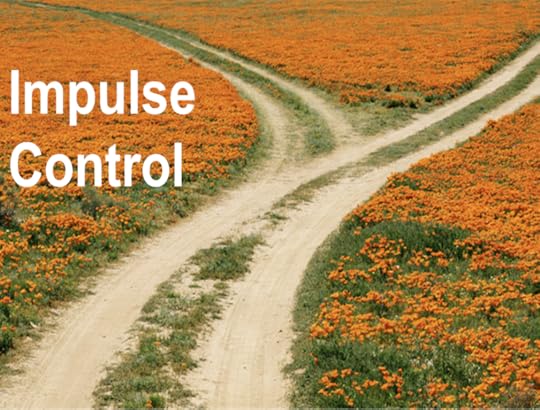 Impulse control is the process of learning to stop and consider the consequences of your actions, before acting. You can avoid making an impulsive decision by immediately telling yourself:
Impulse control is the process of learning to stop and consider the consequences of your actions, before acting. You can avoid making an impulsive decision by immediately telling yourself:Not right now.I need time to think about it.I can’t right now, because I’m leaving right away.
Developmental psychologist, Lev Vygotsky, believes we learn best through guided participation, or in other words, having someone walk through the problem with us. In Japan, if a student is struggling with a math problem, the instructor states, “This is really hard for us,” implying it’s both a problem for the learner and the teacher. + It emphasized the importance of helping people work through failure. As a teacher, try to find the goodness in them. People who feel appreciated, are more motivated.
Consider: I could have made it harder to make an impulsive decision by:Waiting an hour and reconsidering.Make myself do this (positive) task first.Make a list of the pros and cons first.Consider the decision making abilities of people in the environment.Ask, “What will I lose if I make this decision?”If I want to have a large amount of money (or something nice), I can’t spend my money every time I have a small amount.Say, “I am not indestructible,” and list the potential consequences for this choice. Example: head injury, pregnancy, overdose, arrest, a charge that reduces my opportunities for employment.
Story: The new DeBeers diamond ad suggests you buy a ring with 2 diamonds on it—1 for your lover, 1 for your best friend. A late night comedian commented,”I had to call my best friend and get that diamond back. I guess they were both supposed to be for my wife.
Quieting or Controlling your mind
Step 1
Discharge the extra energy & wear yourself out.
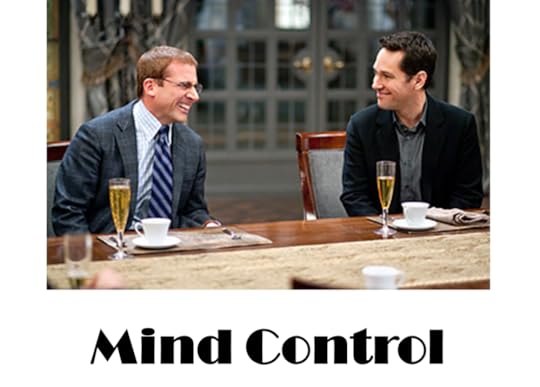 You have no control over your thoughts. Thoughts feel like they “just happen.” The mind runs amuck, often causing misery and terrible choices. The point of meditation, yoga, distance walking or running, or any endurance or mindfulness task is to put the mind under your control… rather than allowing your mind to control you. It’s like a sport for your mind.
You have no control over your thoughts. Thoughts feel like they “just happen.” The mind runs amuck, often causing misery and terrible choices. The point of meditation, yoga, distance walking or running, or any endurance or mindfulness task is to put the mind under your control… rather than allowing your mind to control you. It’s like a sport for your mind.  My favorite way to learn to “quiet” the mind is to wear it out. A long walk works for me. Other people run. Some lift weights until he they’re physically exhausted. Running on the treadmill, or elliptical, or playing an exhausting basketball game would do the trick too.
My favorite way to learn to “quiet” the mind is to wear it out. A long walk works for me. Other people run. Some lift weights until he they’re physically exhausted. Running on the treadmill, or elliptical, or playing an exhausting basketball game would do the trick too. Step 2
Accept your thoughts as guidance toward resolution (even if they’re troubling).
 Step 2, is best done when the mind is already a little relaxed by things like the above… or could happen with Step 1 if the person is well-practiced at it, is learning to control and focus the mind. So, yoga, meditation, mindful eating (where you focus on each bite, or sip of tea), deep breathing, progressive relaxation, etc. Get the mind under your control. The point is NOT to “not think.” The point is to notice WHAT you think. What thoughts keep coming back? What are you sending your mental energy too? Are they helpful thoughts? Why those thoughts? Are you worried? Self-loathing? Depressed about the past? Anxious about the future? This step is insight building.
Step 2, is best done when the mind is already a little relaxed by things like the above… or could happen with Step 1 if the person is well-practiced at it, is learning to control and focus the mind. So, yoga, meditation, mindful eating (where you focus on each bite, or sip of tea), deep breathing, progressive relaxation, etc. Get the mind under your control. The point is NOT to “not think.” The point is to notice WHAT you think. What thoughts keep coming back? What are you sending your mental energy too? Are they helpful thoughts? Why those thoughts? Are you worried? Self-loathing? Depressed about the past? Anxious about the future? This step is insight building. Step 3
Use your mind to pose the right questions.
 Step 3, involves making the mind your friend, your coach, your teacher. Learn to listen to your inner wisdom. Learn to think the right thoughts and pose the right questions to yourself. Quiet your mind so you can focus on the decision over environmental influences (stop multi-tasking and step away from the situation or electronics and focus on the choice):Ask, “What is the downside to making this decision?”Ask, “Will this decision benefit me?”Ask, “How would my mom or dad, or partner, feel if I made this decision?”Ask, “Is this decision consistent with my values and how I see myself as a person?”Ask, “How will I feel about this decision one year from now?” Eventually, that year will be today.Ask, “How will people treat my family (parents, siblings, children, partner) if I make this decision?”Ask, “Would my grandmother approve of this decision?”Ask, “Does this decision have the potential to become a bad habit?”
Step 3, involves making the mind your friend, your coach, your teacher. Learn to listen to your inner wisdom. Learn to think the right thoughts and pose the right questions to yourself. Quiet your mind so you can focus on the decision over environmental influences (stop multi-tasking and step away from the situation or electronics and focus on the choice):Ask, “What is the downside to making this decision?”Ask, “Will this decision benefit me?”Ask, “How would my mom or dad, or partner, feel if I made this decision?”Ask, “Is this decision consistent with my values and how I see myself as a person?”Ask, “How will I feel about this decision one year from now?” Eventually, that year will be today.Ask, “How will people treat my family (parents, siblings, children, partner) if I make this decision?”Ask, “Would my grandmother approve of this decision?”Ask, “Does this decision have the potential to become a bad habit?”  To help with impulsive anger:
To help with impulsive anger:Story: I helped a man of Mexican ancestry today who is a great worker, but he struggles a little with English. He works at a factory and applied for a promotion working on a new machine. He's the guy people go to fix the machines and he cleans anytime he isn't busy, thinking "anything to help the company." His coworkers thought he was a shoe-in for the job, but instead it went to another guy who has been fired 3 times for being incompetent. I've talked to him about how frustrating situations are opportunities to show we don't respond like everyone else. He was proud of how he handled it.
He went to his boss and asked why he didn't receive the promotion.
His boss responded by teasing, "Your English isn't too good."
He asked his boss to follow him to the machine. He then stood there silent next to it. When his boss started talking he said, "Shhhhhhhhhhhhhhh..."
After a bit his boss said, "You realize this machine doesn't talk?"
He told his boss, "Yeah, I just wanted to make sure you realized this."
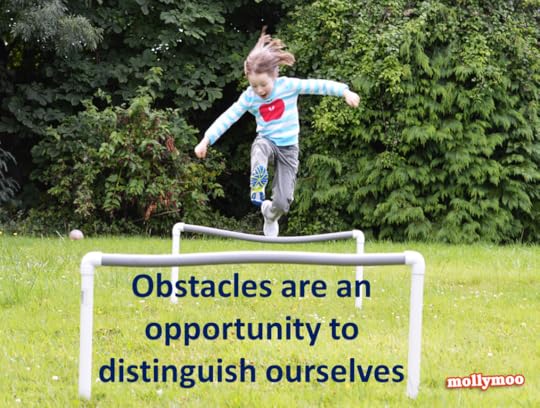 Obstacles are an opportunity to distinguish ourselves. We don’t have to react like everyone else.Following an emotional encounter, write out your thoughts and don’t allow yourself to respond until tomorrow.
Obstacles are an opportunity to distinguish ourselves. We don’t have to react like everyone else.Following an emotional encounter, write out your thoughts and don’t allow yourself to respond until tomorrow.I had a client do this who found, most of the things he gets angry about were the result of comments he misunderstood, and there really was nothing to do about them. This process enabled him to both keep his job, and take things less personally.Tell myself, “Shut up,” so I don’t say something I’ll regret. We want to say something immediately, but we almost never have to. Consider the amount of time it will take to fix the relationship after the comment. Is it worth it?
Would you still make the comment if you just gave yourself an hour to think about it?Walk away and calm down, or go for a drive and play some music. (The first book on anger written in the 1800’s suggested we walk in a straight line when we’re angry and don’t turn back until we’ve calmed down.)Would the situation be better if I didn’t respond?When face to face with a difficult person, tell yourself, “God put people like you on this earth to prove I can be a decent person.”
 Values are standards people live their life by.
Values are standards people live their life by. Beliefs can become Values when commitment to it grows. So people start with beliefs but can later convert them to values.
We have values as an individual. Values as a couple. Values as a family.
Our values can come in conflict and at that point we need to decide which values are most important to us. Is it more important to be a decent person or to be loyal? There are people like Socrates, Jesus, Ghandi, Muhammed, Confucious and Guatama Buddha who believe that some values are universal. An example of values:
 Reliability = Are you going to be there for your partner or your children?
Reliability = Are you going to be there for your partner or your children?Commitment = to relationship or family
 Honesty = Are you a person of your word?
Honesty = Are you a person of your word?Kindness = kindness is something you do for others
 Loyalty = may be something you do for you. I appreciate loyalty, but I don’t value loyalty over kindness. Is it false pride? (Something you claim to have pride about, but you really shouldn’t be proud of.) For example: Gangs and dysfunctional families engage in a lot of hurtful behavior in the name of loyalty.
Loyalty = may be something you do for you. I appreciate loyalty, but I don’t value loyalty over kindness. Is it false pride? (Something you claim to have pride about, but you really shouldn’t be proud of.) For example: Gangs and dysfunctional families engage in a lot of hurtful behavior in the name of loyalty. 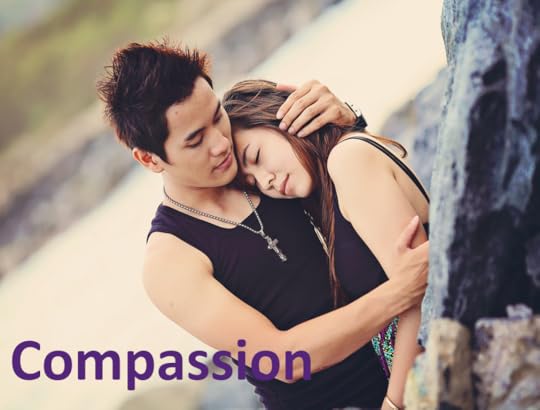 Compassion = understanding the suffering of others
Compassion = understanding the suffering of others  Fairness and Equality = everyone deserves to be treated with respect
Fairness and Equality = everyone deserves to be treated with respect  Respect = sharing consideration for the worth of someone
Respect = sharing consideration for the worth of someoneIt’s not diamonds that are your best friend, but best friends who are your diamonds.
Be a friend to someone you work with.
Know the value of time. (This means both use time wisely, and take time to listen.) At this moment, you could be kind to someone.
Value yourself.
My wife’s grandmother, Mae Gross, was one of the most amazing people I’ve ever met. She was a farmer’s wife--not particularly well-educated. But whenever you had a conversation with her, you felt important. I should be that gifted.
Recognize when people are doing things right—at home, at work, people you help, etc. This reinforcement is your most powerful tool. (It works on us.)
Basic Values Questions:
 In what situation would you have sex with another person? Love. Affection. Attention. Any moving object. Your answer to this question is descriptive of the person you are.
In what situation would you have sex with another person? Love. Affection. Attention. Any moving object. Your answer to this question is descriptive of the person you are.  Is it okay to degrade others? We all need to laugh, but be weary of jokes that target groups. Is pornography okay? Would it be okay if it was a family member? Don’t we have a responsibility to care for everybody, even people who don’t take care of themselves?
Is it okay to degrade others? We all need to laugh, but be weary of jokes that target groups. Is pornography okay? Would it be okay if it was a family member? Don’t we have a responsibility to care for everybody, even people who don’t take care of themselves?  What are your values regarding alcohol use, marijuana and other illegal drugs? When would you know you were using too much? Where do you draw the line?
What are your values regarding alcohol use, marijuana and other illegal drugs? When would you know you were using too much? Where do you draw the line? 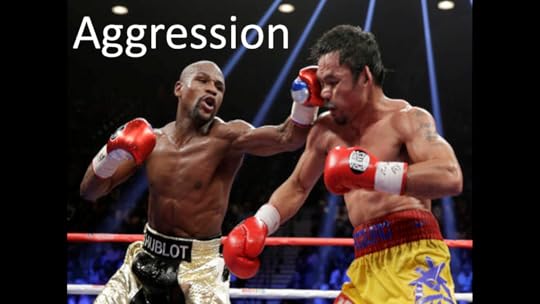 In what situation would you hit another person? Anger. Insult. Self-Defense.
In what situation would you hit another person? Anger. Insult. Self-Defense.  How important is family to you? How often do you talk to them? When’s the last time you’ve helped a family member?
How important is family to you? How often do you talk to them? When’s the last time you’ve helped a family member?How do you leave an environment? Better. As you entered it. Trashed out.
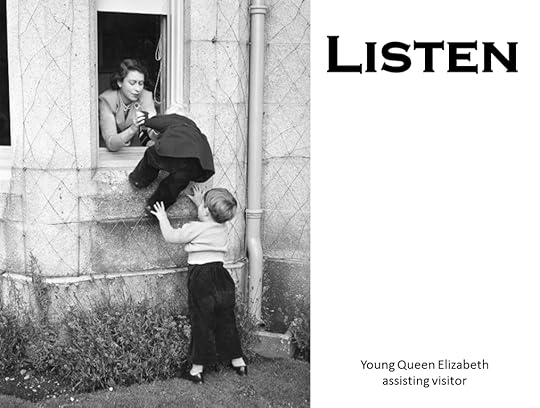 When do you offer to listen to others? Too busy. Convenient. Set times. Too often.
When do you offer to listen to others? Too busy. Convenient. Set times. Too often.  How is your spirituality evident to others? Many of us believe there is something larger that connects all of us. Attend church. At work. At home. In your relationship. The manner in which you treat others.
How is your spirituality evident to others? Many of us believe there is something larger that connects all of us. Attend church. At work. At home. In your relationship. The manner in which you treat others. Don’t let anyone tell you they’re not responsible for their behavior. It’s an insult to their intelligence and integrity.
 I can safety plan for situations that create poor impulsive decisions (consider how I’m going to respond to the risks before I go into the situation):If I’m approached to drink, I will say, “No thank you, I need to stay sober today.” I will then speak to someone who is not drinking.If drugs are around, I’ll leave and I will go home (You always hear, “Something is better than nothing,” well doing nothing is better than doing some things).Before I buy an item, I will force myself to return to the store on another day to purchase it, so I have time to consider the consequences of purchasing it.Attention is nice, but I am not that shallow that I need to pursue a relationship every time someone gives me attention.Set a schedule of things I need to get done today and follow through.Is this decision consistent with my values? What kind of person am I if I make this decision?I am no different than anybody else. Everyone has temptation. What separates good people from others is their willingness to make good choices when faced with temptation.Apologize for past poor impulsive decisions. This will help you avoid making this decision again. Take pride in making decisions that avoid poor impulsive choices. (This is important. We battle temptation. Give yourself credit for winning. Reinforcing behavior results in repeating the behavior.)
I can safety plan for situations that create poor impulsive decisions (consider how I’m going to respond to the risks before I go into the situation):If I’m approached to drink, I will say, “No thank you, I need to stay sober today.” I will then speak to someone who is not drinking.If drugs are around, I’ll leave and I will go home (You always hear, “Something is better than nothing,” well doing nothing is better than doing some things).Before I buy an item, I will force myself to return to the store on another day to purchase it, so I have time to consider the consequences of purchasing it.Attention is nice, but I am not that shallow that I need to pursue a relationship every time someone gives me attention.Set a schedule of things I need to get done today and follow through.Is this decision consistent with my values? What kind of person am I if I make this decision?I am no different than anybody else. Everyone has temptation. What separates good people from others is their willingness to make good choices when faced with temptation.Apologize for past poor impulsive decisions. This will help you avoid making this decision again. Take pride in making decisions that avoid poor impulsive choices. (This is important. We battle temptation. Give yourself credit for winning. Reinforcing behavior results in repeating the behavior.)  Develop healthy habits (reducing stress reduces impulsivity):ExerciseEat healthyTalk to healthy people (support group)Be kind to peopleReligious involvementSet time to study and learnHealthy reflection time or yoga
Develop healthy habits (reducing stress reduces impulsivity):ExerciseEat healthyTalk to healthy people (support group)Be kind to peopleReligious involvementSet time to study and learnHealthy reflection time or yoga Conclusions:
Here are my last suggestions for people who struggle with impulsive decision making.If it’s a good idea, it will still be a good idea in 48 hours.Consult with two healthy people before making the decision.People treat us today based on the choices we made three months ago. How do you want people to treat you three months from now? If you want respect, make respectful choices.Scan the environment. What are the risks? Do you trust the people here to make good choices in this situation?
 Quotes:
Quotes:If con is the opposite of pro, then isn’t Congress the opposite of progress?
Jon Stewart
The star of Cake Boss was arrested for DWI. Police interrogated him for 30 minutes at 350 degrees.
Joe Toplyn
The Onion Headline:
Parents are choosing not to learn the gender of their obstetrician until after the child is born.
This is a conversation that occurred in my brother’s home.
Wife: “What are you watching?”
Husband: “I’m watching an ID show where the wife kills her husband. Do you want me to record it?”
Wife: “Does she get away with it?”
Husband: “No.”
Wife: “Then don’t bother.”
Thanks for listening,
Frank Weber Pictures of our family back in 1989.






















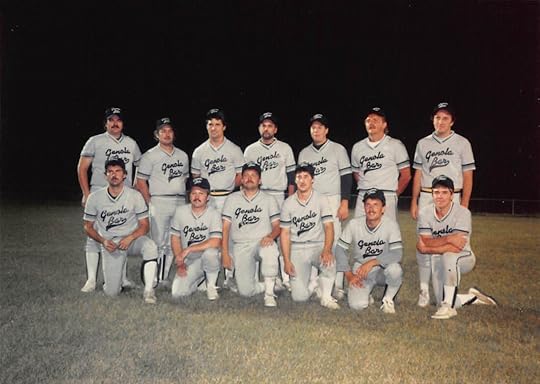


Published on February 19, 2018 06:40
No comments have been added yet.



